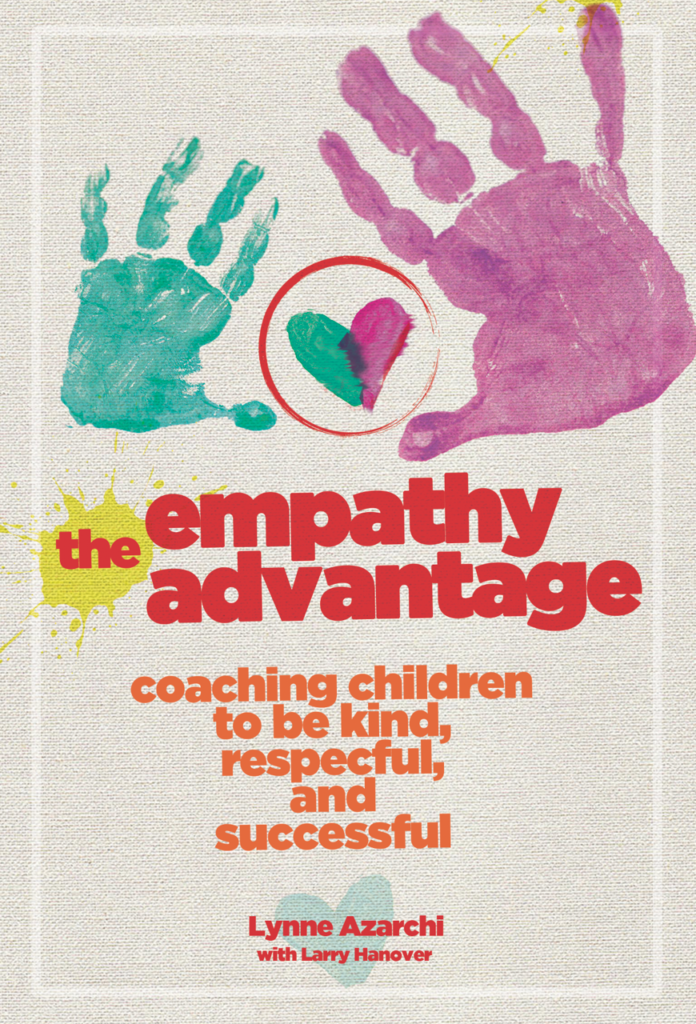These are challenging times for parents, teachers, caregivers, and children —as if, before Covid, life wasn’t challenging enough. We all want to reduce stress and anxiety for ourselves and those we love. We aspire to more kindness and respect in our homes and classrooms.
What is the ‘secret sauce’ to supporting your family during these stressful times dialing down the drama and anxiety? The recipe calls for empathy. Teaching empathy is the path to downgrading the tension, strain, and challenges we all face.
What is empathy? Simply, it is the ability to “walk in someone else’s shoes.” It is the ability to grasp the world from someone else’s point of view– the ability to understand what others see and feel. The benefits for your investment in your child(ren) and teens are vast, making for stronger interpersonal, teamwork, and leadership skills. Empathy also improves a family’s caring culture. Anxiety
How Is Lack of Empathy Manifesting in Our Youth?
- There has been an increase in bullying and cyberbullying.
- Teachers complain that their students do not know how to have a conversation.
- There have been increases in narcissism: extreme selfishness and self-centeredness.
- There has been a decline in face-to-face interpersonal skills with peers; kids don’t know how to talk to one another and work out their problems.
- Screen time is out of control; many kids are on their smartphones and tablets more than they sleep. They are addicted.
Here are a few easy strategic tips to get you started using empathy to achieve both short and long term benefits:
1. Active listening – this is the most important skill that you can practice. It will benefit you in many different ways. Listen to your kids, your spouse or significant other, relatives, and coworkers; you will hear more, become more mindful, and be more focused. Listening is the single best way to reduce stress and anxiety. Kids want to be heard. Anxiety
2. Make time for nature, creative play, and face-to-face time. Imagination is important too. Anxiety
3. Reading together is one of the best ways to inculcate empathy. ‘Escape’ and relax by diving into the book. Add to the experience by having a brief discussion with your child by ‘walking in the shoes’ of the book’s characters. Anxiety
4. Turn your own phone off – look around – increase your face-to-face time with your family, relatives, and friends. Anxiety
5. Role model empathy, compassion, active listening, respect for oneself, and respect for others
6. Discipline –not punishment – be consistent. Search for teaching moments, engage in conversations and discuss making better choices next time. Punishment doesn’t teach anything. Anxiety
7. Teachable moments – with everyone masked and distanced, be on the lookout in the mall, at sports events, at the food store, and at community events to role model prosocial behavior.
8. Volunteering – look for ways to discuss with your children those in the community who have less than you. Research informs us that discussions that examine “walking in the shoes” of the poor person, an elderly person, or someone in pain is the critical empathy builder that is a necessity following community service activities. Anxiety
9. Have some fun with all of this – kids learn better when they are having fun. Can you think of a fun empathy activity that I haven’t thought of yet? An empathy game or empathy challenge? Partner with your kids to create an empathy game.
As mentioned previously, part of building a strong parent-child relationship rich with interaction is engaging in face-to-face activities and minimizing exposure to technology and media. Little children are natural lovers of the outdoors, losing themselves in wonders ranging from the colors of leaves in the fall to blowing dandelion seeds to make a wish. Don’t forget the fun of reading, puzzles, and playing board games.
And don’t feel that you have to over-schedule. I know when I was growing up, I had a lot of alone time. Alone time is invaluable because it allows the young brain to take off in creative play and flights of imagination. The American Academy of Pediatrics (aap.org) wisely recommends that parents establish screen-free times, such as dinner and other mealtimes, and screen-free zones, such as children’s bedrooms.
I wish I had done this with my children. By the time I started asking my children to help around the house at the age of eight or nine, it was too late. There were battles because they were not accustomed to helping at all. It needs to be part of the household’s routine. Learn from my mistakes: start asking for assistance with simple tasks at an early stage. Let them walk in your shoes – forever cleaning up after others.
YOU CAN DO IT … with the power of EMPATHY!
I hope by now I’ve coached you to move past that initial reaction. You’re already starting to be empathy pros. You know you can do this! Even if you can’t meet those goals consistently, you can UP your game a little bit to start on the path to a more attentive, caring child or student.
—
Lynne Azarchi is the author of the book The Empathy Advantage: Coaching Kids to be Kind, Respectful and Successful. She is also the executive director of Kidsbridge Youth Center outside of Trenton, New Jersey—a nonprofit organization dedicated to fostering bullying prevention, anti-bias, diversity appreciation, empathy, and empowerment strategies for youth. Over her career, Azarchi has educated more than 30,000 students, won many awards, and been published both in newspapers and academic journals. For more information visit www.lynneazarchi.com.
